Prime Minister Narendra Modi on Wednesday asked states to make full use of the expanded COVID-19 testing capacity and saving lives a top priority as India recorded the highest ever spike of 2,003 coronavirus deaths after Maharashtra and Delhi added earlier fatalities not attributed to the disease.
Modi also called for fighting the stigma associated with coronavirus and that people should be assured there is no need to panic if somebody has contracted the infection as the number of recovered patients has also been rising.
The COVID-19 recovery rate for the country currently stood at around 53 per cent.
The COVID-19 death toll stood at 11,903 while the number of cases jumped by over 10,000 for the sixth day to cross another grim milestone of over 3.5 lakh cases, according to Union health ministry data.
The COVID-19 caseload climbed to 3,54,065 with 10,974 new infections being reported in the last 24 hours.
According to a PTI tally based on reports from the states, the number of cases jumped by 15,082 to total 3,56,044 with 1,92,571 recoveries. The death toll stood at 12,183.
Of the 2,003 new deaths, Maharashtra accounted for the highest 1,409 fatalities taking its COVID-19 death tally to 5,537, while the death toll in Delhi stood at 1,837 after 437 more people died of the disease, according to the data updated at 8 am.
Maharashtra, Tamil Nadu and Delhi are the three worst affected states.
“The sudden surge in deaths is based on entry of data by the states. Maharashtra and Delhi have reconciled data from previous days,”
a health ministry official said.
As COVID-19 cases spike, some states came out with new strategies to check the spread of the disease.
In a first, Tamil Nadu tested as many as 25,463 samples in a single day while 2,174 people tested positive for the coronavirus, the highest increase in a 24-hour period, propelling the tally to over 50,000.
The Maharashtra government has been testing samples aggressively and tracing new cases under ‘chase the virus’ strategy, and has also ramped up health infrastructure, according to Chief Minister Uddhav Thackeray.
With this strategy, the virus spread has been significantly contained in Dharavi, the biggest and thickly-populated slum sprawl in Mumbai, an official release quoted Thackeray as having told the prime minister during a video conference.
The state’s COVID-19 tally stood at 1,16,752, according to a state health bulletin.
The Karnataka government has decided to conduct random testing on slum dwellers, vendors and bill collectors at markets, delivery and courier boys among others, aimed at effective surveillance, an official circular said.
The death toll has breached the 100 mark to touch 102, while the number of cases rose by 204 to total 7,734.
In Delhi, health surveys were conducted for a population of 1,77,692 in 242 containment zones between June 15-16 in a bid to improve contact mapping in the national capital, according to the Ministry of Home Affairs, days after Union Home Minister Amit Shah stepped in and announced a slew of measures to fight the pandemic.
Speaking to chief ministers and representatives of 14 states and the union territory of Jammu and Kashmir through video conference, Modi underlined the emotional aspect of the fight against the coronavirus, including battling fear of being afflicted, and the stigma attached by making people aware of the high number of those who have defeated the infection and recovered.
The active cases stood at 1,55,227, while 1,86,934 people have recovered, according to the health ministry.
Saving lives should be the top priority, Modi told the chief ministers, as he called for expanding the health infrastructure of the states, according to an official statement.
The Wednesday interaction was the second and final segment of Modi’s sixth round of consultations with chief ministers in the last three months on fighting the COVID-19 pandemic.
Referring to the rise in number of infections, Modi underscored the need for testing, tracking, tracing and isolating COVID-19 patients to deal with the pandemic.
Noting that the spread of COVID-19 is more in a few big states and cities, he asked states to make full use of their existing testing capacity and also work to augment health infrastructure.
India has stepped up testing capacity significantly to three lakh samples per day with a network for 924 laboratories including 674 in the government sector.
According to the Indian Council of Medical Research (ICMR), a total of 60,84,256 samples have been analysed for coronavirus in the country till June 16 with 1,63,187 tested on Tuesday.
The prime minister said big crowds, lack of physical-distancing, daily movement of large number of people and small houses in some cities have made the battle against the coronavirus ‘more challenging’.
People’s discipline during the nationwide lockdown has stopped the virus’ exponential growth, he said, adding that India is now better placed than earlier vis-à-vis treating patients, health infrastructure and trained manpower.
The Maharashtra government demanded from the Centre COVID-19 treatment drugs remdesivir and tocilizumab ‘in large quantity and at reasonable rate’.
Talking to reporters in Mumbai, Health Minister Rajesh Tope said the state also wants the Centre to provide additional 500 ventilators.
“We have been issuing remdesivir and tocilizumab drugs to treat COVID-19 patients on case-to-case basis with the help of ICMR. But now we need these medicines in large numbers and at reasonable price from the Centre for treatment of patients,”
he said.
The AIIMS, meanwhile, conducted a pilot study to assess the effect of low dose radiation therapy in alleviating symptoms of pneumonia in coronavirus-infected patients.
Dr D N Sharma, head of the Radiation Oncology department at All India Institute of Medical Sciences and the principal investigator of the research project, said two COVID-19 patients who were on oxygen support were given the therapy last Saturday and their condition has improved since then.
He said the two patients, aged above 50 and who were being treated at the National Cancer Institute, AIIMS, Jhajjar, are off the oxygen support now.
Sharma said eight more patients will undergo the therapy after which the data of the results will be analysed. If the therapy is found is to be effective in COVID-19 treatment in moderate to severe cases, the research project would be expanded further.
“Radiation therapy usually is given in high doses for cancer treatment but in this case we are giving a safe low dose of radiation at 70 cGy in one sitting to the patient,”
he elaborated.
The entire treatment takes around 15 to 20 minutes and has no side-effects.
According to Sharma, this treatment mode was used till 1940s for treating pneumonia when there were no antibiotics.
“Similar studies are being conducted in the US, Spain and Italy also,”
he said.

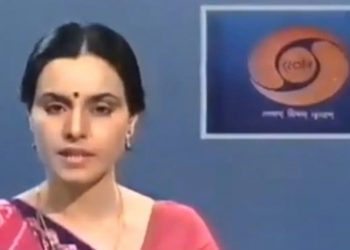
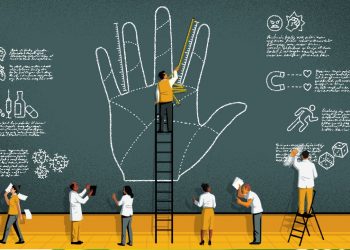
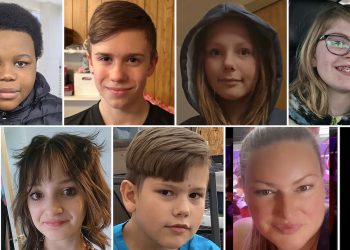
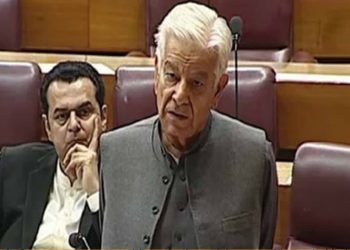

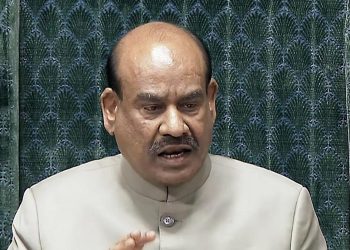

Discussion about this post